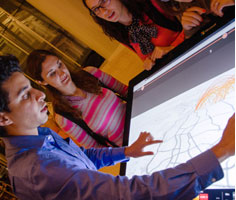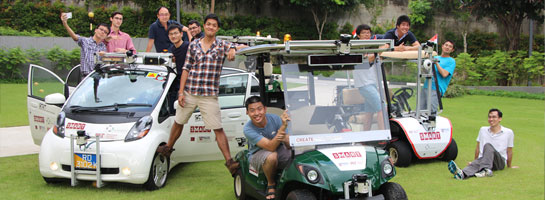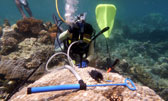




Intan Suci Nurhati: Thank you. I am here as a climate and ocean scientist. I received this award from the German government for my research in understanding the role of global warming in the oceanography and environments over the Indonesian maritime region. Here my approach is unique such that I ask nature, because nature itself has archives of environmental changes such as how temperature, rainfall, etc., have changed over time. Specifically, I study reef-building corals and trees as nature's archives from whom I ask what the changes in the climate and ocean over the Indonesian maritime region are.
If we cut across a tree, we can see its annual rings. From there, not only can we study how the width of these rings changes whenever the ambient environmental condition that this tree experiences change, but also we can learn more from the chemical composition of this tree. So trees can be used to study changes over the land, but here I also look at coral reefs. Corals are not rocks. They are actually start out small and grow out with their accumulated layers. I study these layers of coral to understand changes in ocean temperature, rainfall as well as the health of corals themselves.
My research questions are indeed close to understanding impact to societies. Firstly, I want to know how climate changes affect rainfall over the Indonesian maritime region. But this is a very large region. So the changes can be different from what happen around Sumatra versus Java, Borneo and so on. Therefore I have been working together with research institutes in Indonesia to collect samples from many sites for us to study from. Secondly, we also want to learn about coral reefs' health because coral reefs are nursery for marine life therefore they are important for societies in Indonesia and the region. By studying corals, we can also learn how climate change causes ocean acidification which would affect corals, making the coral skeleton more porous similar to osteoporosis on human.